Israeli gas field start-up reignites maritime disputes with Lebanon
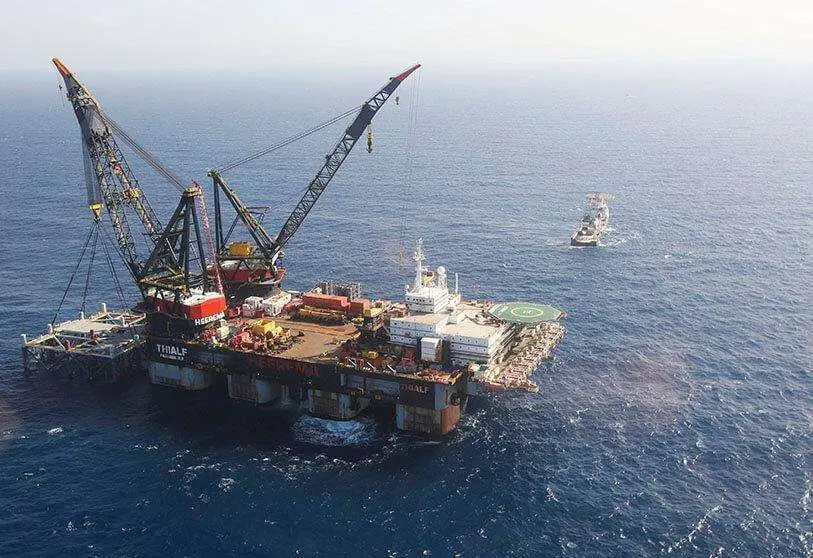
The arrival of a floating production, storage and offloading (FPSO) unit of Energean Power in Israel's Karish gas field has reignited tensions with Lebanon. The field lies in waters that Tel Aviv considers within its Exclusive Economic Zone (EEZ), but which are disputed by Beirut.
"I welcome the arrival of the platform in Israel and hope that its connection and the required tests will be carried out quickly and successfully [...] we will continue to work towards diversifying the energy sector and preserving its stability and reliability," Karine Elharrar, the Israeli energy minister, said in a statement.
An ongoing maritime dispute between #Lebanon ?? and #Israel ?? has re-entered the spotlight after an Israeli production vessel docked in an offshore gas field on Sunday.
— FRANCE 24 English (@France24_en) June 9, 2022
The Lebanese claim the ship is in disputed territorial waters, but the Israelis refute this pic.twitter.com/WvIJCkScYx
Tel Aviv and Beirut do not have diplomatic relations and, as such, have never delimited their maritime borders. As soon as new gas resources began to be discovered in the eastern Mediterranean, disputes in this regard escalated. In 2011, Lebanon, through what is known as Decree 6433, submitted to the United Nations a maritime map that included in its waters an area of 860 square kilometres claimed by both countries between what are known as lines 1 and 23.
The United States tried to mediate between the two sides to reach an agreement, but the negotiations did not reach a successful conclusion and were frozen in December 2020, when the Lebanese negotiating team increased the claim to what is known as line 29, increasing the claims by 1,430 square kilometres, in an area where the Karish oilfield is partially located.

However, although Beirut has systematically claimed this territory ever since, Michel Aoun's government has not yet submitted an amendment to Decree 6433, so this claim has never been formalised, but for the time being has only represented a negotiating position. And in a context of increasing demand for natural gas in Europe to reduce imports from Russia, Tel Aviv has moved first.
The Israeli moves have drawn condemnation from across the Lebanese political spectrum. "Negotiations on the delimitation of the maritime border are still ongoing, and any activity or operation in the disputed area therefore constitutes a provocation and a hostile act," declared President Aoun, who called on the UN Security Council to demand that Israel stop exploiting the field.

Acting Prime Minister Najib Mikati condemned the Israeli action, accusing Tel Aviv of seeking to impose a fait accompli. "This is extremely dangerous and could create tensions with unpredictable consequences," the Sunni politician warned. "We call on the UN and all parties involved to understand the situation and force the Israeli enemy [sic] to stop its provocations," Mikati concluded.
In a joint statement, Aoun and Mikati also announced that they will invite the US emissary in charge of mediation between Israel and Lebanon, Amos Hochstein, to Beirut to "discuss the continuation of negotiations for the delimitation of the southern maritime border [...] in order to avoid any escalation that would be detrimental to the stability of the region".
#Lebanon has warned #Israel against any ‘aggressive action’ in disputed waters, after the arrival of a drill ship, in the eastern Mediterranean https://t.co/ChFIgihM7q pic.twitter.com/pOlDlZQEkf
— Arab News (@arabnews) June 5, 2022
Parliamentary Speaker Nabih Berri said that 'if [Amos] Hochstein is not cooperative or does not get results, the Lebanese government should meet and decide unanimously to amend Decree 6433 and send it to the UN'.
Several of the protesting MPs, reformist politicians who won entry into parliament in the last elections with the declared aim of renewing the country's politics, have also condemned the vessel's arrival in disputed waters, such as Ibrahim Mneimné, who told local media L'Orient-le Jour that "we want at least to assert and protect our rights on a legal and diplomatic level".
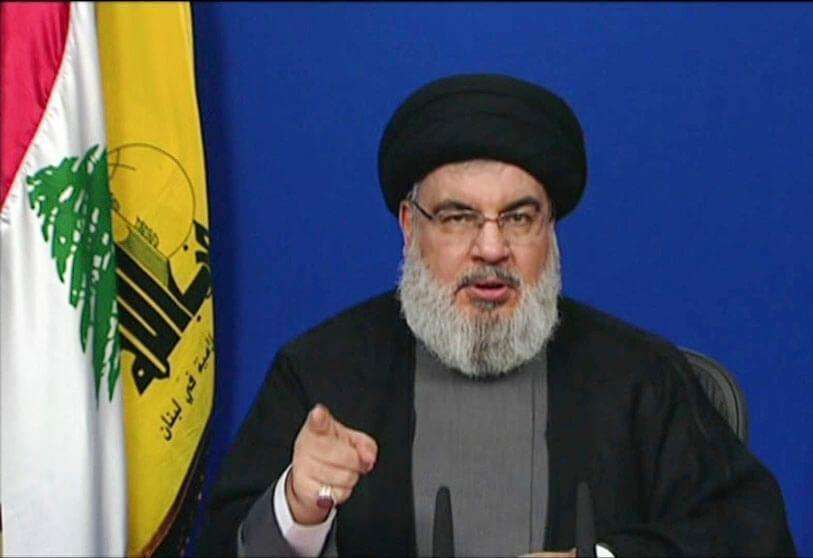
But the strongest condemnation has come from Israel's great enemy in the country, Hezbollah. "When the Lebanese state says that the Israelis are attacking our waters and our oil, we will be ready to do our part in terms of pressure, deterrence and use of appropriate means, including force," Hezbollah's deputy secretary general Naim Kassem told Reuters, affirming the party's resolve to act even if it would mean the start of a conflict.
Earlier, Hassan Nasrallah, the party's leader, said Hezbollah had the ability to prevent Israel's exploitation of the disputed oilfields and warned that "negotiations, especially through the conspirators, collaborators and dishonest American intermediaries who support Israel, will not lead us to any result".

Hezbollah, an ally of Iran and widely regarded as its proxy group in the land of cedars, has clashed with Israel on numerous occasions, and the group is now threatening to attack the Israeli vessel. This rhetorical escalation comes just days after the Shi'a party suffered a parliamentary setback as its coalition lost its majority in parliament in the last legislative elections.
Despite the Arab country's condemnation, Israel, which aspires to become an energy power, plans for the FPSO to begin natural gas extraction as soon as possible. Israel's Energy Ministry spokeswoman told AFP that drilling work has been completed and gas shipments to the mainland are expected to begin in September.
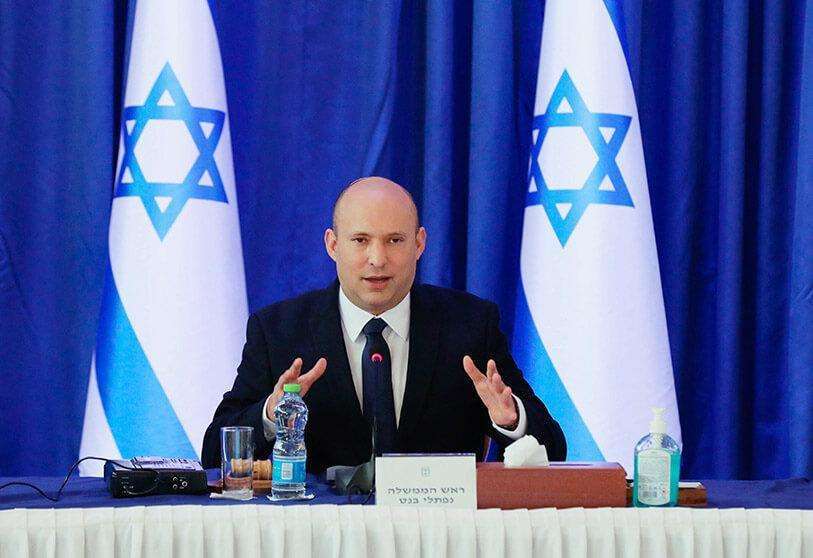
Elharrar, meanwhile, said Tel Aviv is not worried about threats from Lebanon, saying Lebanese rhetoric is far from reality. "We are not in that situation at all", said the minister, who nevertheless warned that "Israel is preparing [...] I recommend that no one should try to surprise us".
Moreover, Israel's Defence Minister Benny Gantz said, "the [maritime] dispute will be resolved in the context of negotiations between us and Lebanon, through the mediation of the United States".
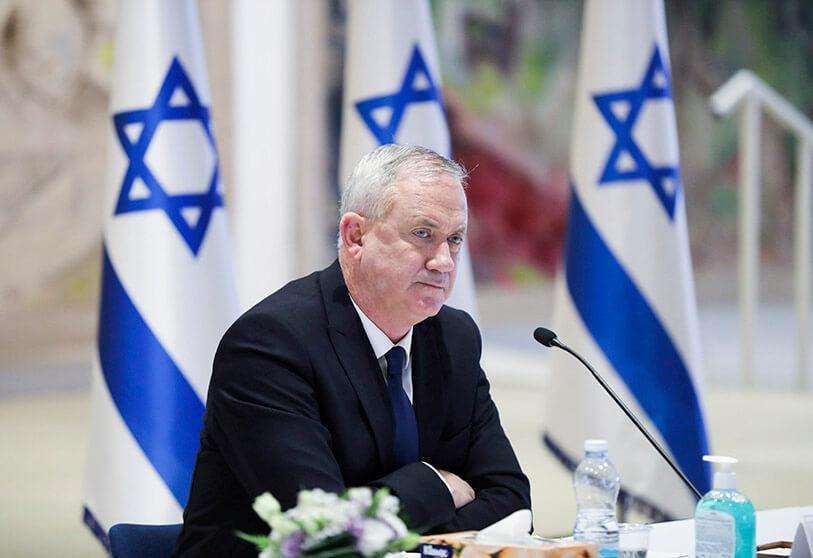
While Israel attracts anger in Lebanon, particularly among Hezbollah, in Palestine the issue of the past few days has been far from Tel Aviv, pointing to the rising price of food and other necessities, with the Palestinian Authority in the spotlight.
In recent days, several protests have taken place in Hebron, the main city in the West Bank, 80 per cent of which is administered by the Palestinian Authority and 20 per cent occupied by Israel. The Palestinian demonstrators, organised under the slogan "We Want to Live", protested the rapid and large increase in the prices of food and energy products, demanding that the Palestinian Authority take action.
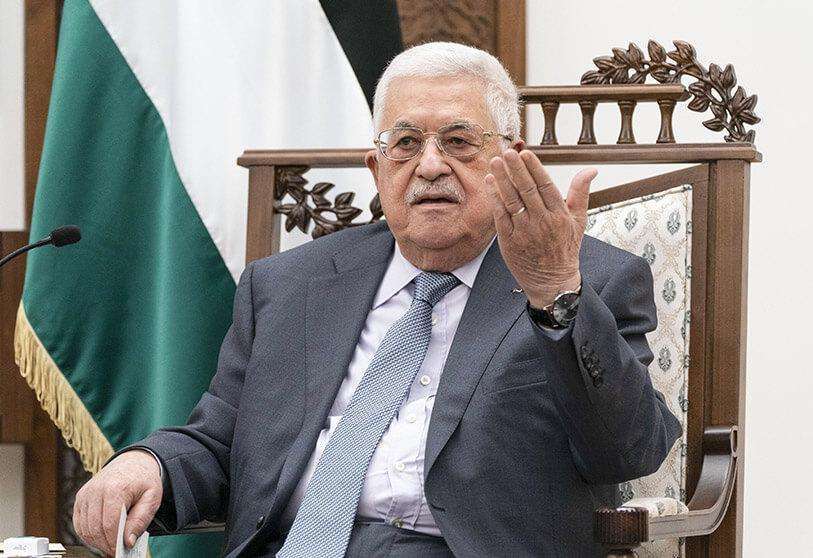
The Palestinian government, which exercises limited autonomy in the West Bank, has already exempted wheat from the tax increase it introduced last February, but protesters are demanding that this exemption be applied to other products, while subjecting local authorities to increased scrutiny.
This discontent comes against the backdrop of the Palestinian Authority's non-payment of part of public salaries since November, blaming Israel's withholding of tax revenues and lower international donations.








